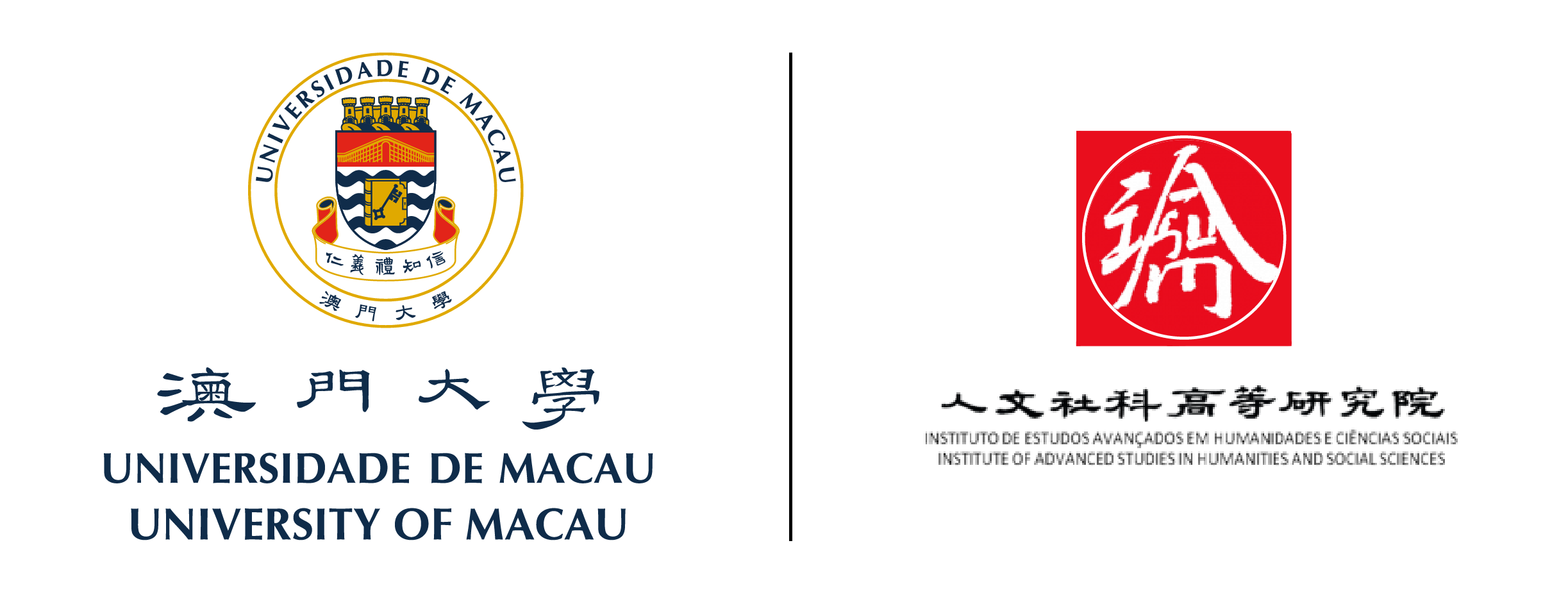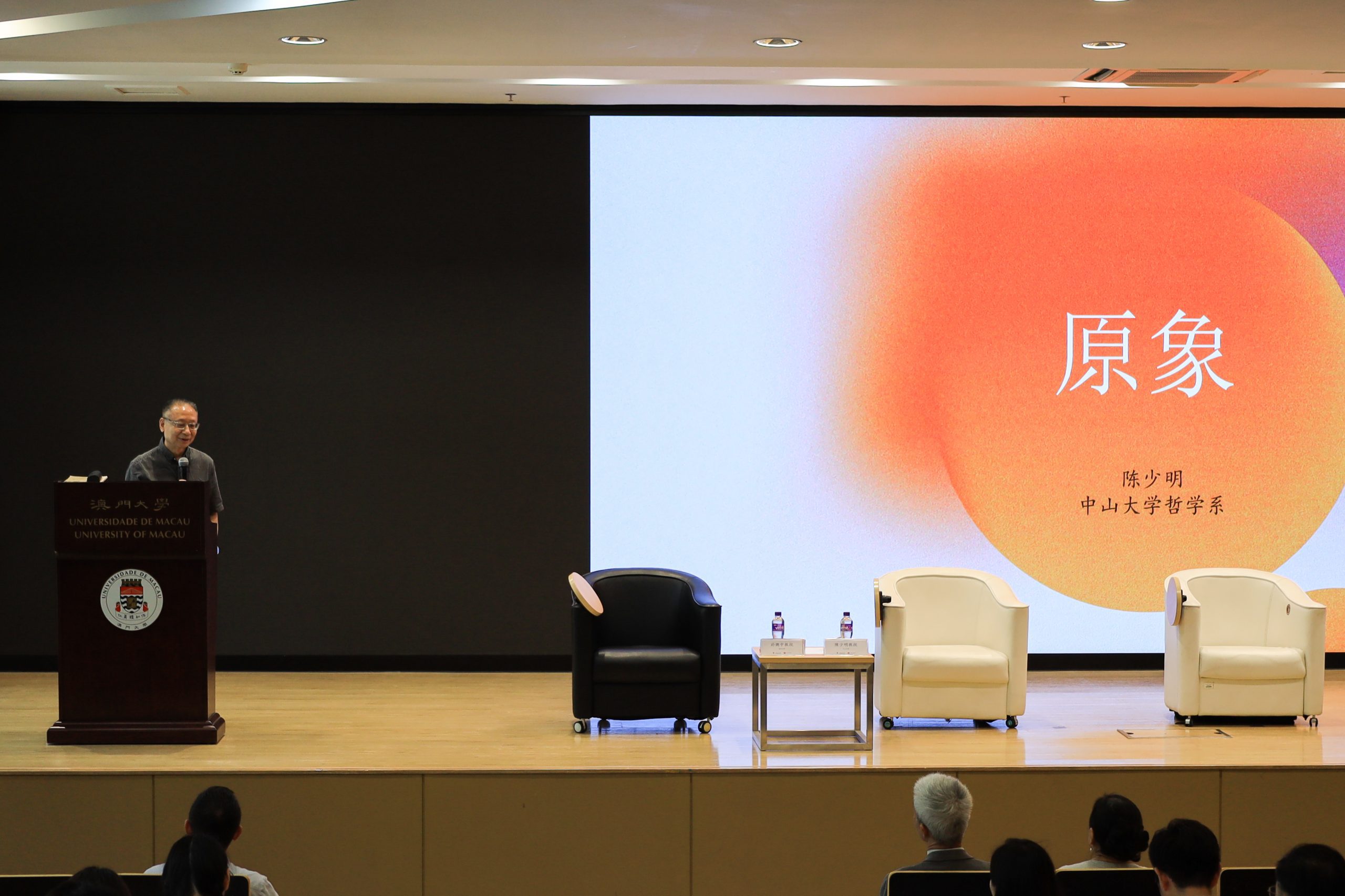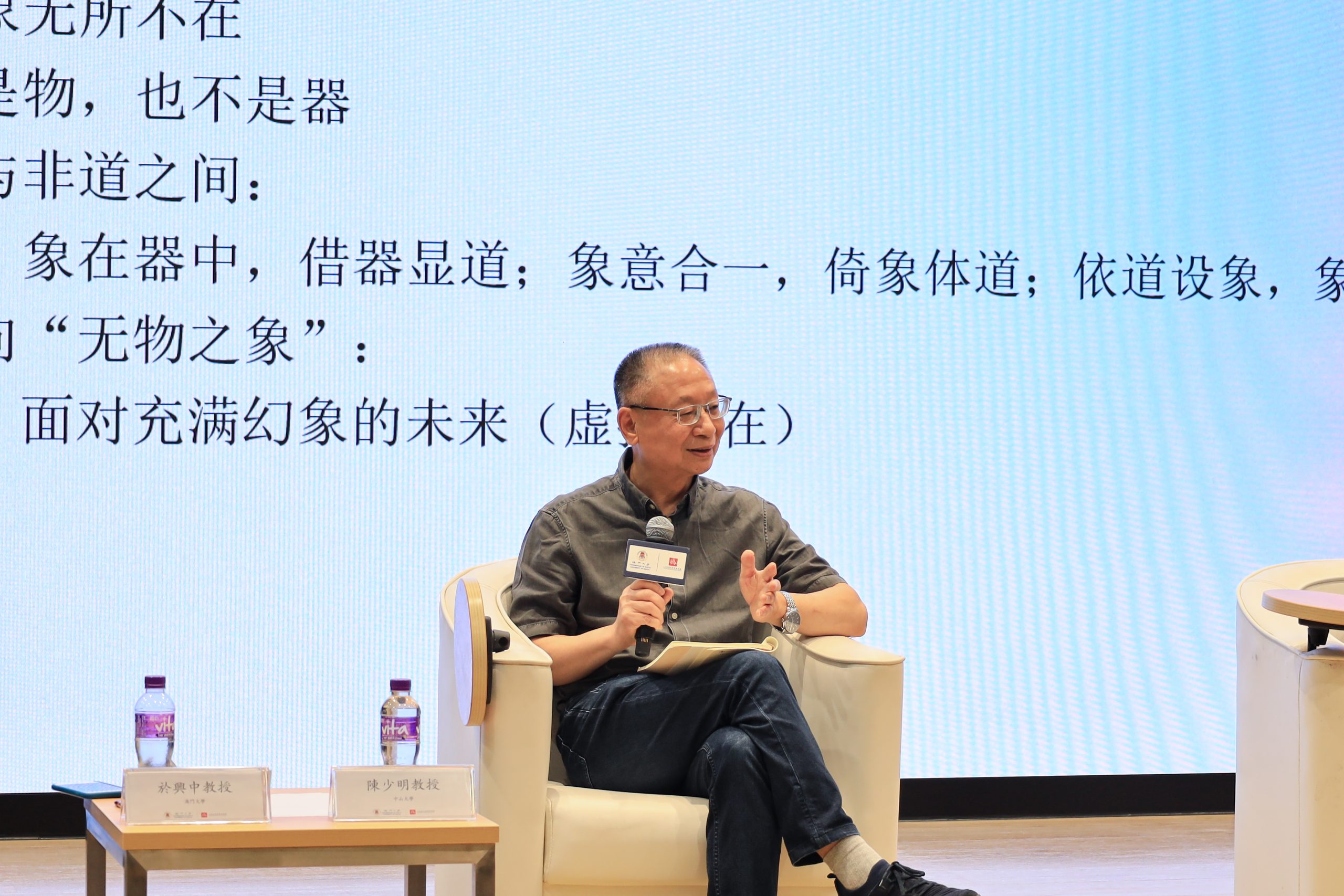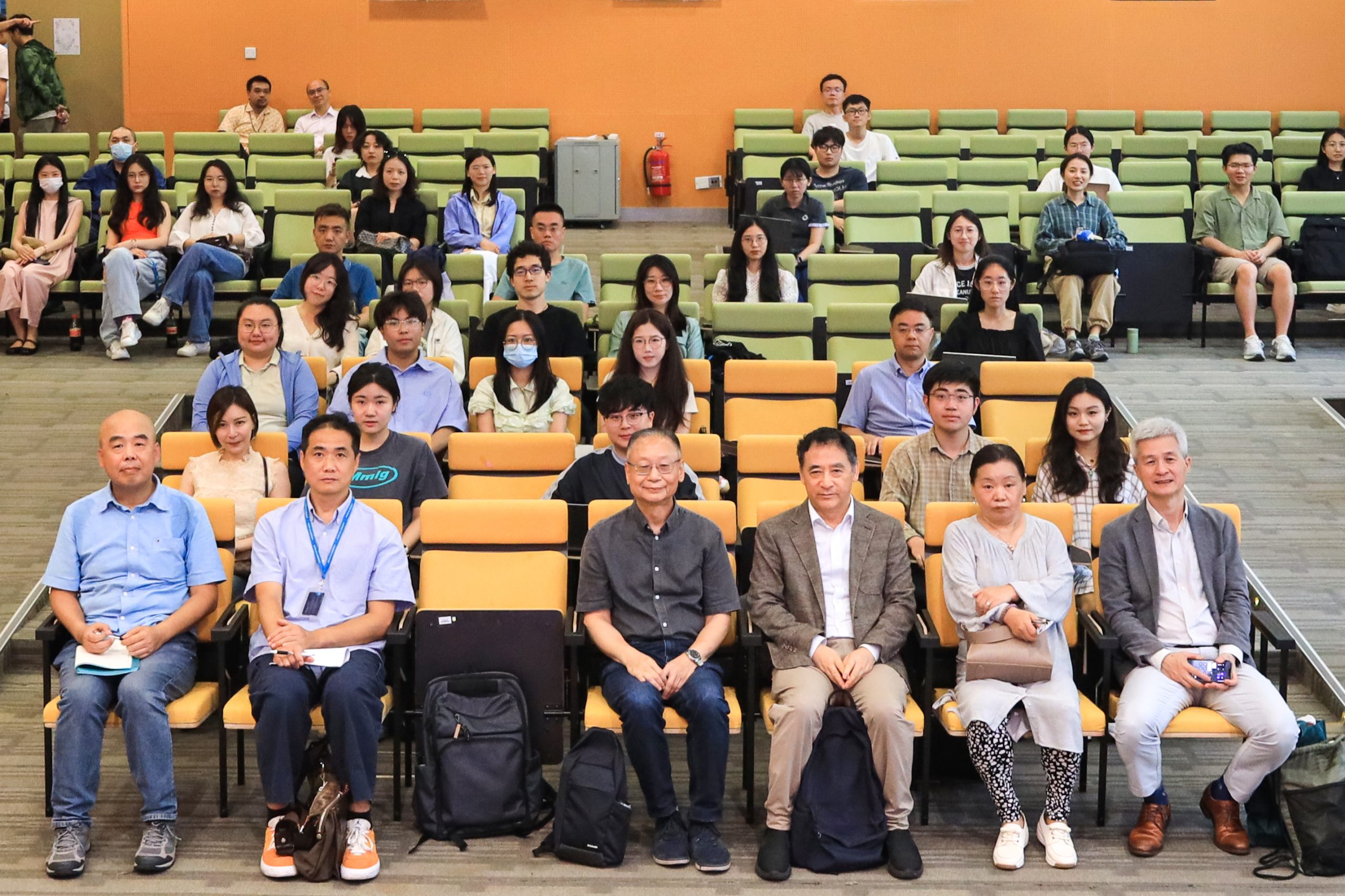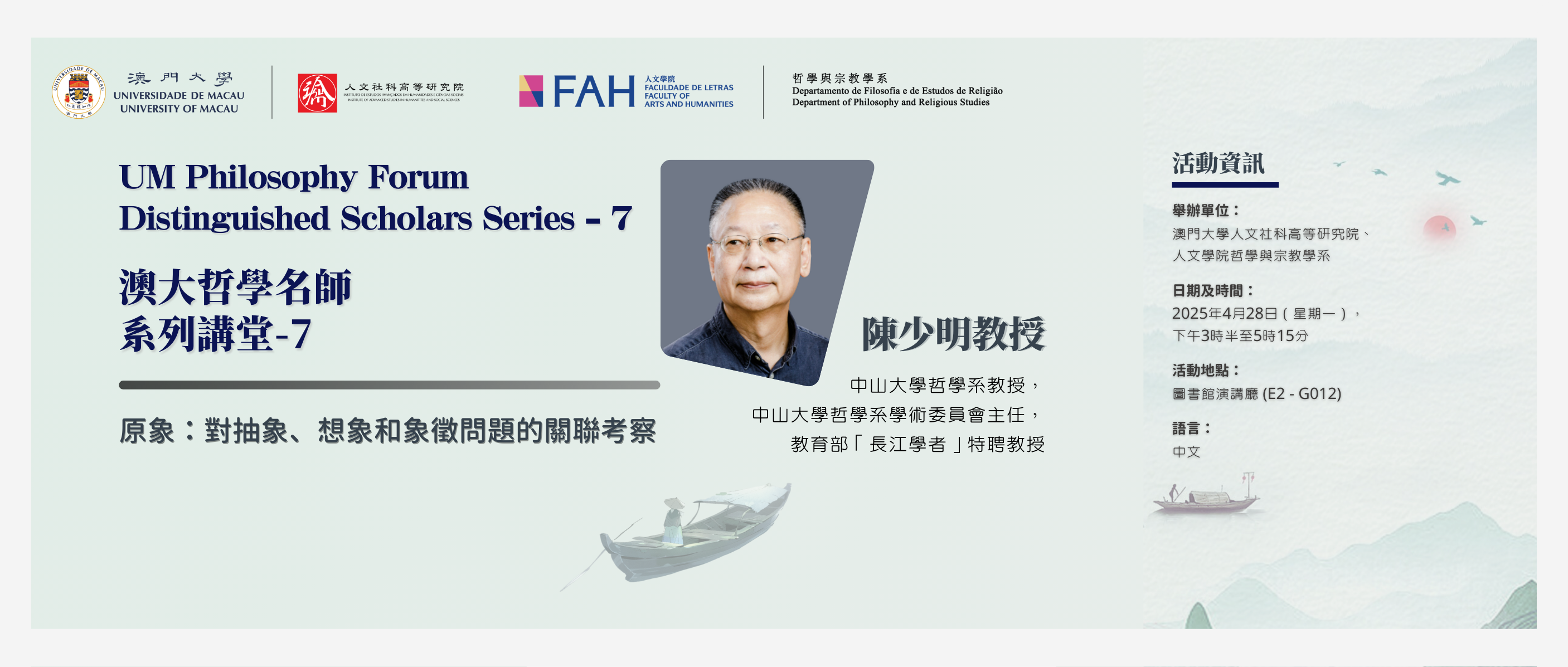
The UM Philosophy Forum Distinguished Scholars Series 7, co-organized by the Institute of Advanced Studies in Humanities and Social Sciences (IAS) and the Department of Philosophy and Religious Studies of the Faculty of Arts and Humanities (FAH), was successfully held on April 28, at E2 Library Auditorium. The keynote speaker, Professor Shaoming Chen, Professor of the Department of Philosophy at Sun Yat-sen University delivered a wonderful speech on “Yuan Xiang: A Connected Exploration of Abstraction, Imagination and Symbolism.” Professor Lisheng Chen and Professor Ellen Zhang from the Department of Philosophy and Religious Studies, FAH, were invited as the discussants, and Professor Xingzhong Yu, Director of IAS and Chair Professor of FLL was invited as the moderator.
Professor Shaoming Chen firstly introduced “Yuan Xiang” as a philosophical concept that bridges abstract thought and concrete perception. He emphasized its role in Chinese philosophy, such as the evolution of “Qi” (vital energy) and “Xiang” (image) from tangible phenomena to abstract philosophical categories. For instance, the simplification of oracle bone script’s pictographic characters into abstract writing systems, and the transition from physical currency to digital transactions, exemplify humanity’s reliance on abstraction to distill complexity.
Professor Ellen Zhang explored the interplay between abstraction and concreteness through art and philosophy. Citing the classical paradox “A white horse is not a horse,” she highlighted how abstract concepts (e.g., horse) interact with concrete instances (e.g., white horse). She also referenced Western abstract expressionism and “absolute music,” arguing that abstraction does not negate concreteness but instead uses forms and symbols to evoke deeper meaning.
Professor Lisheng Chen compared Chinese and Western philosophy. He pointed out that Chinese philosophy (such as Taoist “chaos” thought) opposes excessive abstraction and advocates a balance between concreteness and abstraction. He illustrated this through cultural practices like tea ceremony and theater, where sensory experiences (e.g., taste, movement) embody philosophical concepts such as “the Dao.”
The audience engaged in the discussion session on the challenges faced by the concept of “Yuan Xiang” in contemporary society. Professor Shaoming Chen highlighted that the rise of conceptual art and other forms of “imageless representation” reflects a broader cultural shift, requiring humanity to cultivate more advanced abstract thinking in order to navigate the evolving landscape of modern cultural expression. Professor Lisheng Chen, meanwhile, called for drawing wisdom from Chinese philosophy to resist the alienation of symbols and the erosion of humanistic values.
Through a multidimensional dialogue spanning philosophy, art, and culture, the event deepened the understanding of the relationship between abstraction and concreteness. It elucidated the central role of abstract thinking in the evolution of civilization and offered new perspectives for interdisciplinary research.

